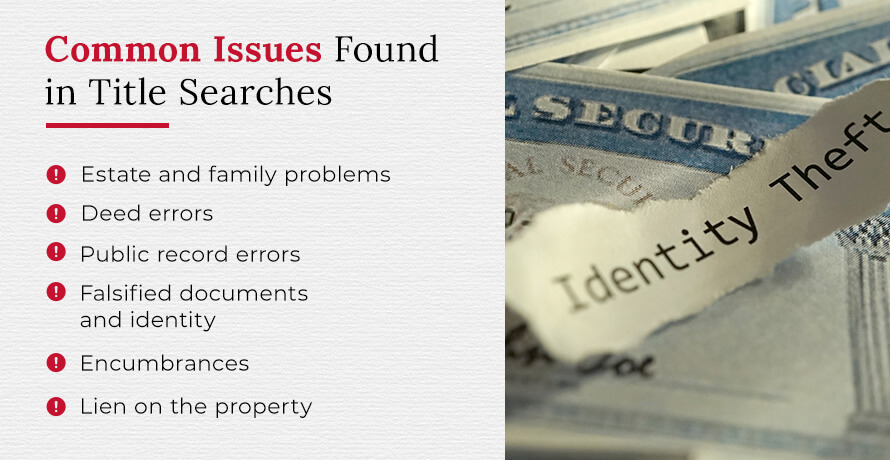Home Title Insurance: The Complete Guide for Homeowners
What is home title insurance? What are the benefits of getting title insurance when buying a residential property? Are there any tips for choosing the ideal insurance provider? If yes, what are they?
Most residential property buyers and sellers in Pennsylvania find the concept of home title insurance confusing, which is understandable. Title insurance is a unique coverage with features different from a typical insurance policy. However, it’s arguably the most important protection for homeowners, considering the possibility of losing the property or incurring outrageous financial losses.
What Is Home Title Insurance?
Home title insurance is a unique insurance coverage designed to protect home purchasers or lenders against financial losses arising from title defects. Title insurance also mitigates the risk of title disputes, unlike other insurance coverages, which typically assume risks.
The insurer or settlement company conducts an extensive search into the ownership of the property to identify and rectify any flaws associated with the property’s title. If any defect goes undetected, which later results in a dispute or claim, the insurance company will assume the financial loss, subject to the terms of the agreement.
Home title insurance may be optional or mandatory, depending on how you purchase the property. Typically, title insurance is compulsory for home purchases secured by a mortgage. It’s usually optional if you pay cash for the property.
There are many benefits of home title insurance. Primarily, the coverage protects the policyholder against financial losses from a defective title and provides some assurance that the homeowner is acquiring a good title. It also facilitates smooth transactions and gives you the peace of mind to enjoy the property. We’ll discuss these in detail later.
Types of Home Title Insurance
There are two main types of home title insurance:
- Owner’s title insurance policy: Protects the home purchaser against financial losses from title defects. Common risks include conflicting ownership claims, undisclosed heirs, pending lawsuits, fraud or forgery, liens, and encumbrances. An owner’s title insurance policy is usually optional when purchasing the property by any means other than a mortgage, but it is recommended to protect yourself against adverse claims.
- Lender’s title insurance policy: Protects the lender by providing some level of reassurance regarding the validity, priority and enforceability of its mortgage or lien. The lender’s title insurance is typically mandatory for real estate purchases secured by a mortgage.
Title Insurance vs. Homeowners Insurance
Home title insurance and homeowners insurance are insurance coverages with apparent differences. Here are four examples:
- Scope of protection: Title insurance protects you against financial losses arising from a defective title, while homeowners insurance protects you against perils like property damage, theft, personal injuries on the property and loss of use, which involves the living expenses you incur if your home becomes inhabitable.
- Period of protection: Title insurance is retrospective, protecting you against title defects that occurred before you purchased your home. Homeowners insurance is prospective. It protects you against losses that occur after you buy the property.
- Risk perception: Title insurance seeks to eliminate the risks of title defects, while homeowners insurance mostly assumes the risks. Title examiners conduct a title search to identify and resolve defects before issuing home title insurance.
- Premium payment: The home title insurance premium is a one-time payment. The homeowners insurance premium is continuous and could be paid monthly, quarterly or annually, depending on the contract terms.
Common Issues Found in Title Searches
Here are some common issues that real estate attorneys and title examiners find during title searches:
- Estate and family problems: There are many variations of estate and family problems you may uncover during the title search, but the common examples include undisclosed heirs and conflicting wills. These unresolved issues can affect the seller’s right to transfer title and thus must be resolved appropriately.
- Deed errors: Generally, a property owner can only give what they have, meaning they can only transfer what they are entitled to. These rights are often captured in the real estate deed. However, there may be errors in the document, such as the property’s description or interest, leading to disputes and potential lawsuits.
- Public record errors: Title searches can reveal clerical errors or omissions affecting the validity of the title or nature of interests. Real estate attorneys can help you resolve these defects before closing the sale.
- Falsified documents and identity: In an attempt to defraud, some people forge or conceal documents related to the property. Others also impersonate the actual owner by creating fake identification documents. Considering that such people have no rights or interests in the property, any transaction made will generally be void.
- Encumbrances: These are rights, other than ownership interests, affecting a real estate property. Examples of encumbrances are easements and restrictive covenants, which can interfere with your use of the property.
- Lien on the property: Lien is the right of a person — typically a creditor — to assert rights over a property due to an undischarged obligation. The lienholder can apply to the court to seize and sell your property unless the debt is paid. There are different types of liens, including mechanic’s liens, mortgages and tax liens.
Is Home Title Insurance Necessary? 4 Benefits of Home Title Insurance
Home title insurance has many benefits, including those listed below.
1. Offers Financial Protection
The primary advantage of purchasing a home title insurance policy is the protection it offers. Although the title examiners investigate the property’s ownership before issuing the coverage, there are instances where some defects go undetected, and that’s when title insurance kicks in. The insurance company generally takes responsibility for any financial losses you incur according to the terms of the agreement, including litigation and settlement costs.
2. Helps Establish Good Title
An integral part of the home title insurance process is the title search, where title examiners or attorneys investigate the property’s ownership to identify and rectify title defects. This helps determine whether the seller has a good title and has legal rights to transfer the same to another person. Additionally, it can reveal the type of interest or right the seller has in the property, enabling buyers to make an informed decision.
Due diligence mitigates the risk of disputes and can also assist in establishing a defense against future claims. For example, if previously undiscovered back taxes were owed on the property a new owner purchased, an owner’s title insurance policy would likely cover those taxes. If the new owner did not purchase title insurance, they would either have to pay those back taxes out of pocket or risk losing their new home.
3. Facilitates a Smooth Transaction
Knowing that the seller has marketable title to the property and the right to convey or transfer the same gives the parties confidence to close the transaction. The title search can uncover potential issues like conflicting interests and encumbrances, helping the buyer make an informed decision. It eliminates unnecessary delays, surprises and complications during negotiation.
4. Gives Peace of Mind
Title insurance offers the safety net you need to enjoy your new home. It can protect you against financial losses and mitigate the risk of lawsuits. A good title search can also serve as a solid legal defense in the event a dispute arises, reducing the chances of you losing your home. These safeguards offer relief, especially now that forgery or fraud schemes are so realistic.
What Does Home Title Insurance Cover?
Home title insurance generally covers defects resulting from the following:
- Competing claims
- Undisclosed encumbrances and liens
- Undiscovered wills
- Missing heirs
- Fraud or forgeries
- Deed errors or omissions
- Public record errors or omissions
- Boundary and survey disputes
What Does Home Title Insurance Not Cover?
Home title insurance does not typically cover the following:
- Title defects created after signing the insurance policy
- Known defects
- Liens created by the new property owner
- Building code violations after signing the insurance policy
- Noncompliance with laws
Typical Terms and Conditions of Home Title Insurance
The standard terms and conditions of home title insurance include the following:
- Coverage: The insurance company may be responsible for specific risks and issues, like public record errors and omissions or undisclosed liens. Reviewing this section is vital because it tells you what you are protected against.
- Exclusions: This is a list of events and circumstances excluded from coverage. Classic examples include known defects and regulatory breaches.
- Premium: The premium is the amount you pay for the coverage. A home title insurance premium is a one-time payment, typically determined by the property’s value and condition.
- Policy limits: Policy limits describe the maximum amount you can claim under the home title insurance coverage. Policy limits often determine the premium required.
- Notice of claim: This is the process and timeframe for reporting claims to the insurance company.
- Loss of mitigation: The policyholder has an obligation to take reasonable steps to mitigate potential losses arising from the covered issues. For example, the policyholder may be required to notify the insurer promptly after receiving notice of an adverse claim.
The title insurance contract is a legally enforceable agreement, so reviewing it carefully before you sign is essential. It details your rights, obligations and liabilities, which may vary depending on the circumstances. It’s best to consult a reliable and trusted attorney with any doubts or questions.
How Much Does Home Title Insurance Cost?
The cost of home title insurance varies from case to case, depending on factors like:
- Property value: Generally, the more expensive the property, the higher the premium you will pay. The value of the house is determined by its size, overall condition and location.
- Property history: The property’s history impacts the level of search required and the potential risks involved. For example, title insurance for a house belonging to a large family with multiple mortgages will typically cost more, considering the extent of title search required and possible risks associated with the title.
- Professional and miscellaneous fees: Fees paid to professionals like attorneys and surveyors will influence the cost of your home title insurance. You may also incur expenses on things like filing and search reports.
- Extended coverage: You can get additional protection beyond the standard coverage for an extra fee. A good example is getting extended coverage to cater to situations where your property’s value increases.
How to Get Home Title Insurance
Now that you know what home title insurance is and the protection you get from purchasing coverage, let’s look at how you can get one to protect your investment.
1. Research a Title Insurance Company
There are many title insurance companies, so it helps to do detailed research. One of the best ways is working with a reliable title settlement agent or attorney since they have connections with some of the best insurance companies. Prioritize those providing full-service representation for escrow services and real estate closings. Doing so eliminates unnecessary costs while ensuring you get efficient services.
2. Provide the Necessary Information
The title insurance professional will require you to submit some documents, such as a copy of the deed, purchase agreement and mortgage documents, if any. It’s best to be transparent with the title insurance company and submit the documents timely to facilitate the results. The real estate attorney may contact the vendor directly on your behalf if they require further information or clarification.
3. Conduct a Title Search
The title search is one of the most critical stages. This is where the title examiner investigates the property’s ownership history for consistency. The examiner reviews existing deeds, surveys, public records and identification documents before concluding. If they uncover any defects, they will try to resolve them by asking for clarifications or further documentation to establish a clear title. The title examiner may also recommend the payment of existing debts.
4. Review the Commercial Title Insurance Policy
Once the title examiner is satisfied that the title is free from defects, the insurer will provide you with the contract detailing your rights, liabilities and obligations. You can consult the attorney for clarifications if you are working with a full-service firm. Otherwise, you can seek external legal advice for an additional fee.
5. Pay the Premium and Sign the Contract
You can pay the one-time premium after reviewing the terms and conditions. There may be other administrative and professional fees depending on the circumstances. Sign and submit the contract to the settlement agent or insurance company to complete the process.
Selecting the Right Home Title Insurance Company
There are four title factors to consider when choosing the ideal home title insurance company to partner with. These are:
- Experience and professionalism: Check the company’s track record in underwriting title insurance for homeowners. Experienced professionals can assess your needs and provide the ideal coverage.
- Coverage: Review the coverage and exclusions before making a decision. Aim at getting sufficient coverage for a reasonable price.
- Pricing: The cheapest option is not always the best for home title insurance. Instead, focus on whether the policy adequately addresses potential pitfalls that could affect your home’s title. A helpful strategy is selecting a firm that provides full-service representation for escrow services and real estate closings.
- Customer service: Examine the real estate attorney’s customer relations when searching for the ideal partner. Relation-based firms offer added value beyond the core services.
Why Trust Us for Title Insurance Information?
MPL Law Firm has decades of experience across practices, including title insurance. We base our title insurance information on the practical experience that our legal team has garnered. Many of our team members — including Charles A. Rausch, Christian R. Miller, John D. Miller, Jr. and John J. Baranski, Jr. — focus on title insurance law and are licensed agents. Their experience drives our ability to provide accurate legal information and insightful guidance.
Beyond our experience with title insurance, we also exhibit a unique commitment to homeowners in Pennsylvania. MPL Law has operated out of Central Pennsylvania since our foundation in 1987 as Miller & Poole. Since then, we’ve dedicated ourselves to helping Pennsylvania homeowners understand and carry out the legal options available to them. We exemplify our commitment to your community by providing rigorous legal support and actionable real estate insight tailored to your goals.
MPL Law Firm: Your Trusted Home Title Insurance Professional
Choosing an experienced title insurance professional comes with many advantages. They can perform effective title searches and find practical solutions to curing defects. Title settlement attorneys also have the experience to provide tailored advice.
At MPL Law, we have extensive experience providing real estate transactional services. Our licensed settlement company, MPL Land Services, LLC, underwrites home title insurance for Stewart Title and Guarantee Company. We strive to understand our client’s needs and offer the most ideal coverage. Contact us today to learn more about our services!





